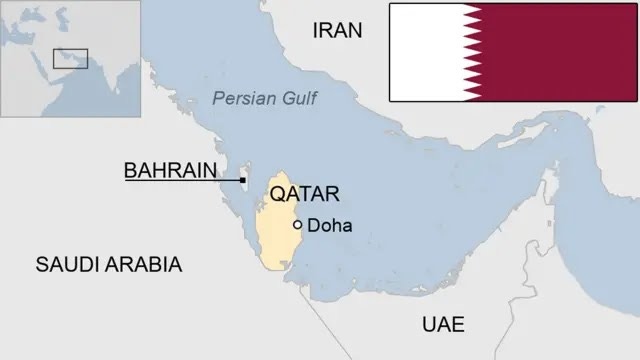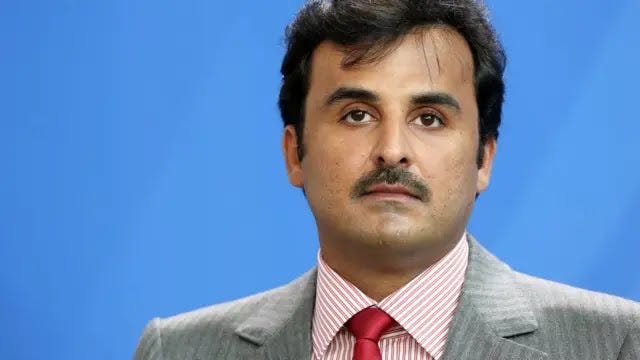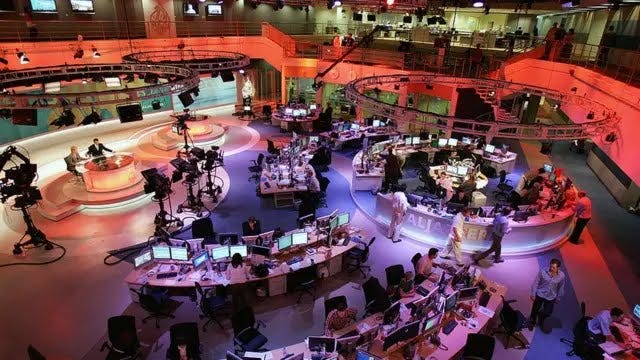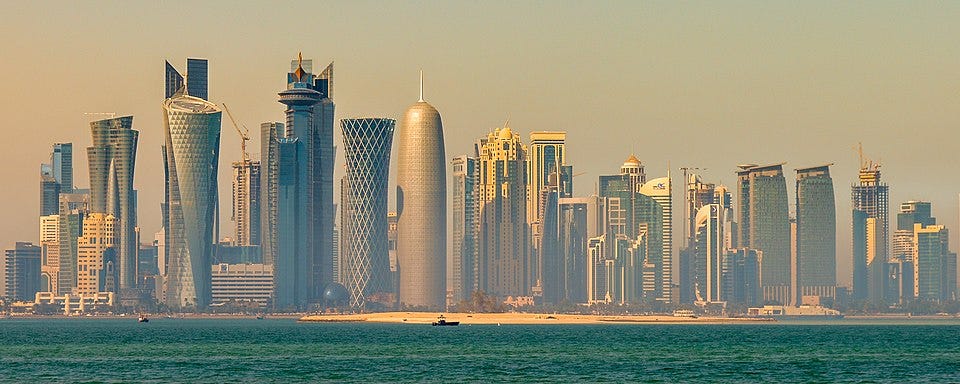Qatar country profile
Qatar, once one of the poorest Gulf states, is one of the richest countries in the region today.
Qatar, once one of the poorest Gulf states, is one of the richest countries in the region today.
Qatar has used income from its large gas reserves to bankroll its regional and global ambitions, including hosting the 2022 Fifa World Cup tournament - the first Arab and Muslim-majority country to do so.
Not all of its regional interventions are popular with other Arab leaders, such as its support for the Palestinian Hamas faction in Gaza and Islamist groups in Egypt and Syria.
In 2017 Saudi Arabia led efforts to cut the country off, ostensibly to force it to abandon its support for radical and Islamist groups. Qatar says any ties with such groups are part of an independent policy of relations with regional actors and strongly denies supporting terrorism.
It also faces problems at home. Oil money funds an all-embracing welfare state, with many services free or heavily subsidised, but the treatment of migrant workers is frequently criticized by rights groups.
STATE OF QATAR: FACTS
Capital: Doha
Area: 11,581 sq km
Population: 2.7 million
Language: Arabic
Life expectancy: 79 years (men) 82 years (women)
LEADER
Emir: Sheikh Tamim bin Hamad al-Thani
Sheikh Tamim bin Hamad al-Thani took over from his father in a peaceful transfer of power in June 2013.
Like his father, he was educated in Britain: he went to Sherborne school in Dorset and Sandhurst, the British military academy.
Sheikh Tamim has made diversifying the economy and investing in the national infrastructure a priority, but much of his tenure has been dominated by tension with Qatar's Gulf Arab neighbours ostensibly over the country's support for radical and Islamist groups, and its efforts to maintain good relations with Iran.
He has promoted sport as part of Qatar's bid to raise its international profile.
MEDIA
Image caption,Al-Jazeera's newsroom in Doha
Influential pan-Arab and international TV broadcaster Al-Jazeera, which is owned by the government, has raised Qatar's media profile.
Qatar invests heavily in its media sector, especially Al Jazeera, which is seen as a tool of regional influence.
But Al-Jazeera and the domestic media avoid criticism of the state and government.
TIMELINE
Image caption,More than 80% of Qataris live in Doha or its suburbs
Some key dates in Qatar's history:
1825 - Al-Thani dynasty establishes control over Qatar, which tries to establish independence from Bahraini suzerainty.
1871 - The Al-Thanis submit to Ottoman overlordship.
1913 - Ottomans agree to British request to withdraw their troops from Qatar.
1916 - Deal signed under which Britain controls Qatar's external affairs in return for guaranteeing its protection.
1939 - Oil reserves discovered. Exploitation is delayed by World War Two, but oil comes to replace pearling and fishing as Qatar's main source of revenue.
1950s - Oil revenues fund the expansion and modernisation of Qatar's infrastructure.
1971 - Qatar achieves full independence from Britain.
1972 - Khalifa bin Hamad Al Thani takes power in a palace coup after infighting in the ruling family.
1990 - After Iraq invades Kuwait, Qatar says it will allow foreign forces on its soil. Qatari troops later take part in the liberation of Kuwait.
1995 - Sheikh Khalifa deposed by his son, Hamad, in a bloodless coup.
1996 - Qatar sets up international Al-Jazeera TV, which changes the face of Arab broadcasting.
2003 - Qatar-based US Central Command forward base serves as the nerve centre in the US-led military campaign in Iraq.
2005 - First written constitution comes into effect, providing for some democratic reforms.
2017 - Diplomatic crisis as Saudi Arabia launches Arab transport blockade ostensibly in an attempt to get Qatar to cut its connections with radical and Islamist groups, and distance itself from Iran. The crisis ends in 2021 following a resolution between Saudi Arabia and Qatar
Image caption,Doha officially became Qatar's capital on its independence in 1971
The BBC
AI Overview
Qatar's economy is heavily reliant on natural gas and oil exports, with the country being a leading exporter of liquefied natural gas (LNG). While traditionally based on fishing and pearling, the discovery of oil in the 1940s transformed the economy and led to a high standard of living for Qatari citizens. Qatar's economic growth is often linked to global hydrocarbon prices and the implementation of a gas program.
Here's a more detailed look:
Key Features:
Hydrocarbon Dominance:
Oil and natural gas exports account for a significant portion of Qatar's government revenue.
Global LNG Leader:
Qatar is a major exporter of LNG, making it a key player in the global energy market.
Strong Economic Growth:
Qatar has experienced high economic growth rates, particularly in the 2010s, driven by rising oil prices and the gas program.
High GDP Per Capita:
Qatar consistently ranks among the countries with the highest GDP per capita globally.
Qatar Investment Authority (QIA):
The QIA manages Qatar's vast financial surpluses, investing in both domestic and international projects.
Non-Hydrocarbon Sector Development:
The country is actively diversifying its economy by investing in non-hydrocarbon sectors like education, tourism, and manufacturing.
Strategic Events:
Hosting major events like the 2022 FIFA World Cup has also been a catalyst for economic growth.
Economic Challenges and Future Prospects:
Oil Price Volatility:
Qatar's economy is sensitive to fluctuations in global oil and gas prices.
Post-Event Adjustment:
After the 2022 World Cup, the economy experienced a period of adjustment, with a decrease in GDP growth.
Diversification Efforts:
Qatar is focusing on diversifying its economy to reduce its reliance on hydrocarbons.
Long-Term Growth:
The country is expected to continue growing, with the expansion of LNG capacity projected to further boost the economy in the coming years.
In summary, Qatar's economy is characterized by its strong reliance on hydrocarbons, high GDP per capita, and ongoing efforts to diversify and build a more sustainable long-term economic model.
Economy of Qatar
Article Talk
The economy of Qatar is one of the highest in the world based on GDP per capita, ranking generally among the top ten richest countries on world rankings for 2015 and 2016 data compiled by the World Bank, the United Nations, and the International Monetary Fund (IMF). The country's economy has grown despite sanctions by its neighbors, Saudi Arabia and the United Arab Emirates. Mainly because the country exports primarily to Japan, South Korea, India and China, making the sanctions effectively redundant as neither Saudi Arabia nor the United Arab Emirates have imposed trading penalties such as tariffs or embargoes on any of these countries for trading with Qatar, or offering incentives such as discounts for their own energy exports to reduce Qatari exports.
Economy of
Qatar
West Bay, Doha, the financial centre of Qatar
Currency
Qatari riyal (QAR, QR)
Trade organisations
WTO and GCC
Country group
Developing/Emerging
High-income economy
Statistics
Population
Neutral increase 3,098,866 (2024)[3]
GDP
Increase $240.217 billion (nominal, 2025)
Increase $369.24 billion (PPP, 2025
GDP rank
55th (nominal, 2024)
60th (PPP, 2024)
GDP growth
Increase 4.1% (2022)
Decrease 1.2% (2023)
Increase 1.5% (2024f)
GDP per capita
Increase $72,760 (nominal, 2025)
Increase $118,760 (PPP, 2025)
Source: Wikipedia








